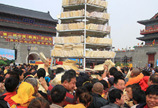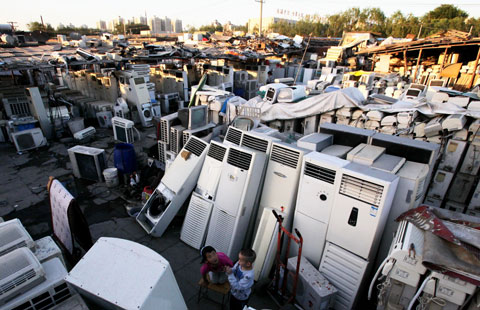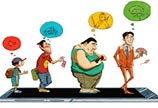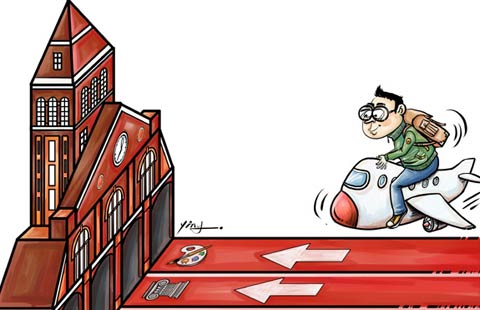Angry drivers taking the road to perdition
By Shi Jing in Shanghai and Li Jing in Beijing (China Daily) Updated: 2012-03-30 10:12The situation has become so serious that on Feb 22, the traffic police in Guangzhou, the capital of Guangdong province, conducted a survey via its official micro blog, asking about the frequency of incidents of road rage among the city's private car drivers. Of the 166 respondents, 46 percent said they were occasionally affected by road rage, while 22 percent said they frequently displayed classic symptoms, such as shouting at fellow motorists and driving aggressively.
According to research conducted by the Shanghai Business Auto 007 newspaper, which surveyed 280 drivers in 2011, about 80 percent of those interviewed said they've exhibited symptoms of road rage.
But the problem has been around for a while. In 2010, a survey of 2,023 people, conducted by a website affiliated with the China Youth Daily newspaper, found that 86.5 percent of the interviewees thought that cases of road rage were common.
Meanwhile, in 2008, the Henan province-based news website Dahe conducted a survey on the phenomenon. More than 60 percent of the drivers interviewed admitted that they had committed some sort of road rage, while about 31 percent said they would blast the horn continuously if they got impatient while waiting. Roughly 20 percent confided that they would often sit in their cars and curse violently if they became really annoyed.
So why does road rage occur? The answers are not easy to ascertain, but the growing availability of private cars and easy access to a driver's license may be among the major reasons.
In January, an auction in Shanghai saw 24,354 bidders compete for 8,000 private car license plates. The average price for a license plate at the auction was 53,195 yuan ($8,434) and the minimum was 52,800 yuan. Meanwhile in March, the lowest bid for a license plate in Shanghai was 58,300 yuan, with the average bid coming in at 58,625 yuan, almost half the price of a new car. License plate prices in the city have topped 50,000 yuan for the past four months.
Even though the cost of acquiring a license plate continues to rise, people's eagerness to own a private car is not abating. According to statistics provided by the Transport Administration Bureau of the Ministry of Public Security, the total number of vehicles using China's road network was 225 million at the end of 2011, with automobiles accounting for 106 million of that total. Moreover, the number of motorists rose to 236 million, an increase of 22.69 million year-on-year.
Meanwhile, the number of road accidents is rising in tandem with the rise in vehicle ownership. In July, the Ministry of Public Security said the first half of 2011 saw more than 1.84 million road traffic accidents, a rise of roughly 1 percent year-on-year, causing 25,864 deaths and 106,370 injuries.
We've probably all met someone who undergoes a total change of personality when they sit behind the steering wheel. Huang Hua, an advertising sales manager in Shanghai, said she "sees a different personality" when her husband drives.
"My husband is basically a very tender and gentle person. But when he drives, he gets cross easily, quarrelling with other drivers and even cursing at them. I feel extremely insecure every time he drives," she admitted.
Insufficient training
The short training period for car drivers is considered another reason for the increase in the number of accidents on China's roads. Although the oral section of the test is becoming more complicated and the exams are implemented far more rigorously, the overall training period is far too short, said Hua Hanmin, a senior driving instructor at Wuxi Driving School in Jiangsu province, who has been on the road for more than 30 years.
"It was time-consuming to learn to drive some 30 years ago. It took us two months to learn to reverse and park the car, two months to learn things such as driving on slopes or making sharp turns, and another two months making long-distance trips, which means we drove from Wuxi in Jiangsu province to faraway Jiangxi province in the southeast. During those six months, we didn't go to work, we did nothing but practice driving," said Hua.
- Seven villagers murdered in N China
- China steps up tobacco control efforts
- Five jailed for separatism in Xinjiang
- Letter asks for leniency in poisoning case
- Antibiotics in surface water pose 'indirect health risk'
- Tianjin airport opens up transit link to Beijing
- High levels of antibiotics in China's major rivers
- China to dig tunnel for Asian rail system
- Bering strait line to US possible, experts say
- China: Stop oil rig harassment







